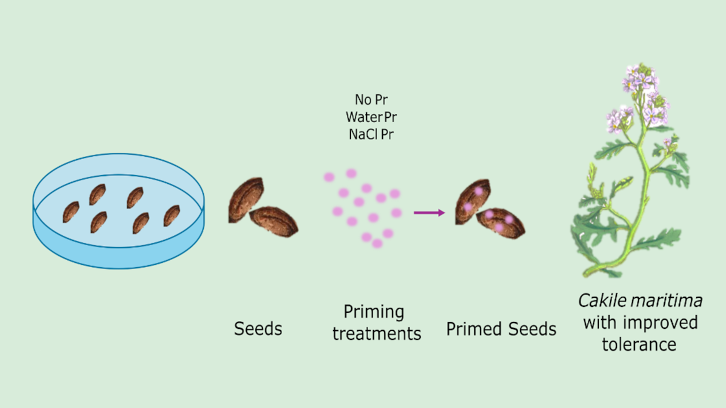Preparing Seeds to Withstand Climate Change: A Natural Solution Against Salinity

The growth of population, the loss of arable land, and climate change threaten global food security and economic stability. Crops are particularly affected by excessive soil salinity, and research has focused on improvements in plant tolerance. A new study highlights seeds as a key strategy to increase plant resistance through the technique of halo-priming.
Environmental conditions resulting from climate change are increasing global demand for food and generating a pressing need for innovative strategies to improve agricultural productivity and ensure food security. The population is growing rapidly, and the continued loss of arable land is intensifying concerns about food insecurity. The United Nations Food and Agriculture Organisation (FAO) warns that climate change is reshaping traditional cropping patterns and significantly impacting crop reproduction and growth to the extent that an estimated 280 million tonnes of cereal production will be lost by the end of this century. Furthermore, the FAO estimates that more than one billion hectares of soil are affected by excessive salinity or sodium ions, threatening crop establishment and yields, as well as global economic stability.
Efforts to tackle salinity have focused on genetic and biotechnological improvements in plant tolerance, but the potential of the plants continues to be a limiting factor in crop productivity. Plants that germinate in natural environments are exposed to certain conditions that are ‘imprinted’ on them. Taking this into account, the ‘priming’ of seedlings can be a promising strategy for improving resistance to adverse environmental factors. This technique, prior to sowing, consists of controlled hydration of the seeds in specific solutions that activate pre-germination metabolic processes, followed by subsequent drying. In this way, a kind of ‘memory’ is imparted to the soil, which reduces the effects of subsequent exposure to the same stress factor. The so-called halopriming primer, based on the use of NaCl, has proven to be very effective in improving salt tolerance of the soil. Halophytes, plants tolerant to high salt concentrations, are a very valuable tool to deepen the knowledge of the mechanisms of tolerance in extreme conditions.
Marine rocket (Cakile maritima, Brassicaceae) is highly tolerant to salt, up to levels of 400 mM NaCl, which far exceeds the tolerance limit of most crops. It is an excellent plant model for studying the mechanisms of tolerance to salinity and strategies for improving resistance to stress in related and economically important crop species, such as mustard and rapeseed. We have examined their responses to different levels of salinity, as well as the potential of halopriming as a sustainable and environmentally friendly energy source. The printed seeds showed a higher yield compared to the unprinted ones, with a higher germination rate, thus underlining the potential of halo-printing as a sustainable and yielding technique.
This study highlights the importance of advancing soil preparation technologies to develop resilient crops and address global food security challenges in the face of climate change.
Department of Animal Biology, Plant Biology and Ecology
Plant Physiology
Universitat Autònoma de Barcelona
References
Tolrà, R.; González-Cobo, C.; Corrales, I.; Padilla, R.; Llugany, M. (2025) Seed Halopriming as an Effective Strategy to Enhance Salt Tolerance in Cakile maritima: Activation of Antioxidant and Genetic Responses. Antioxidants 14, 353. https://doi.org/10.3390/antiox14030353

